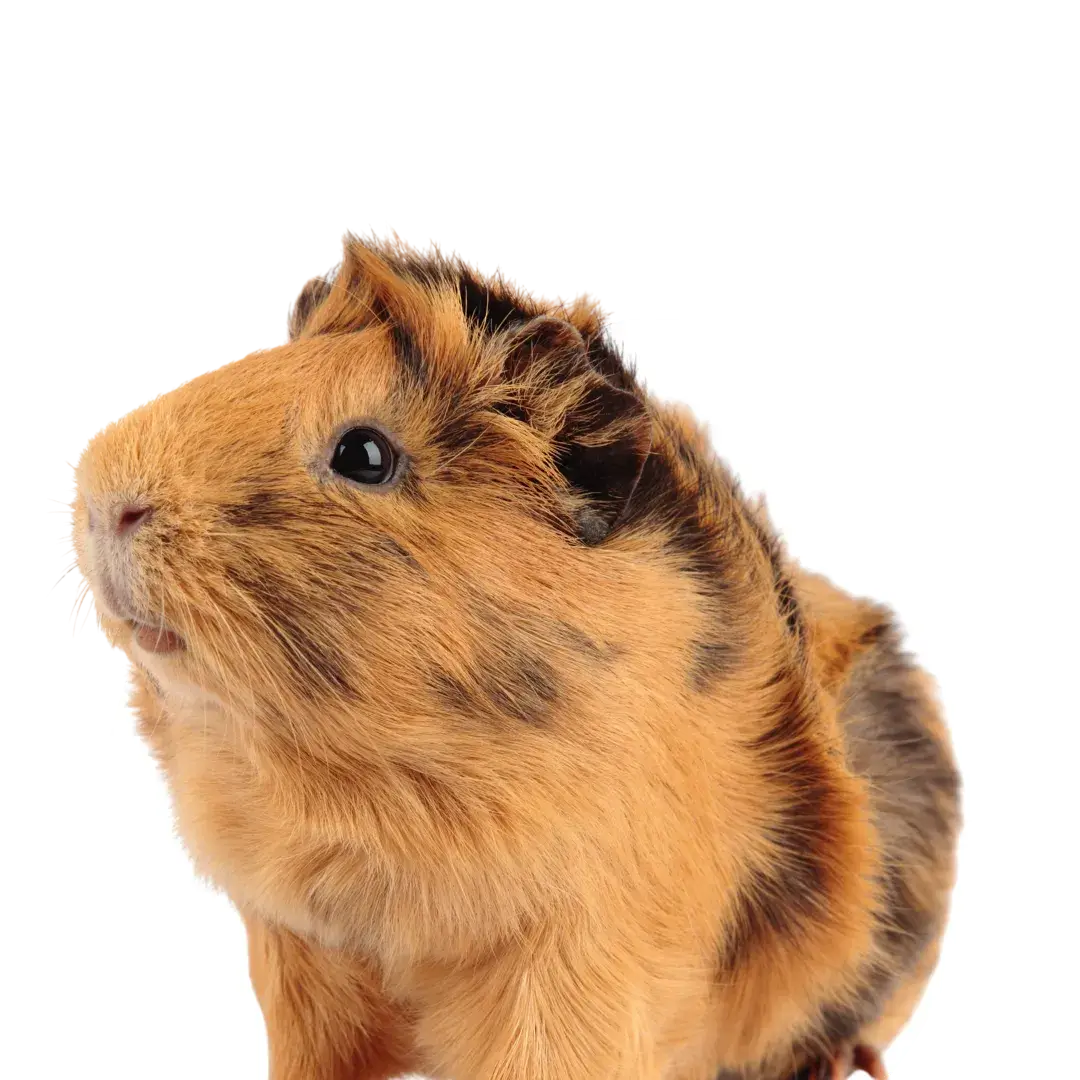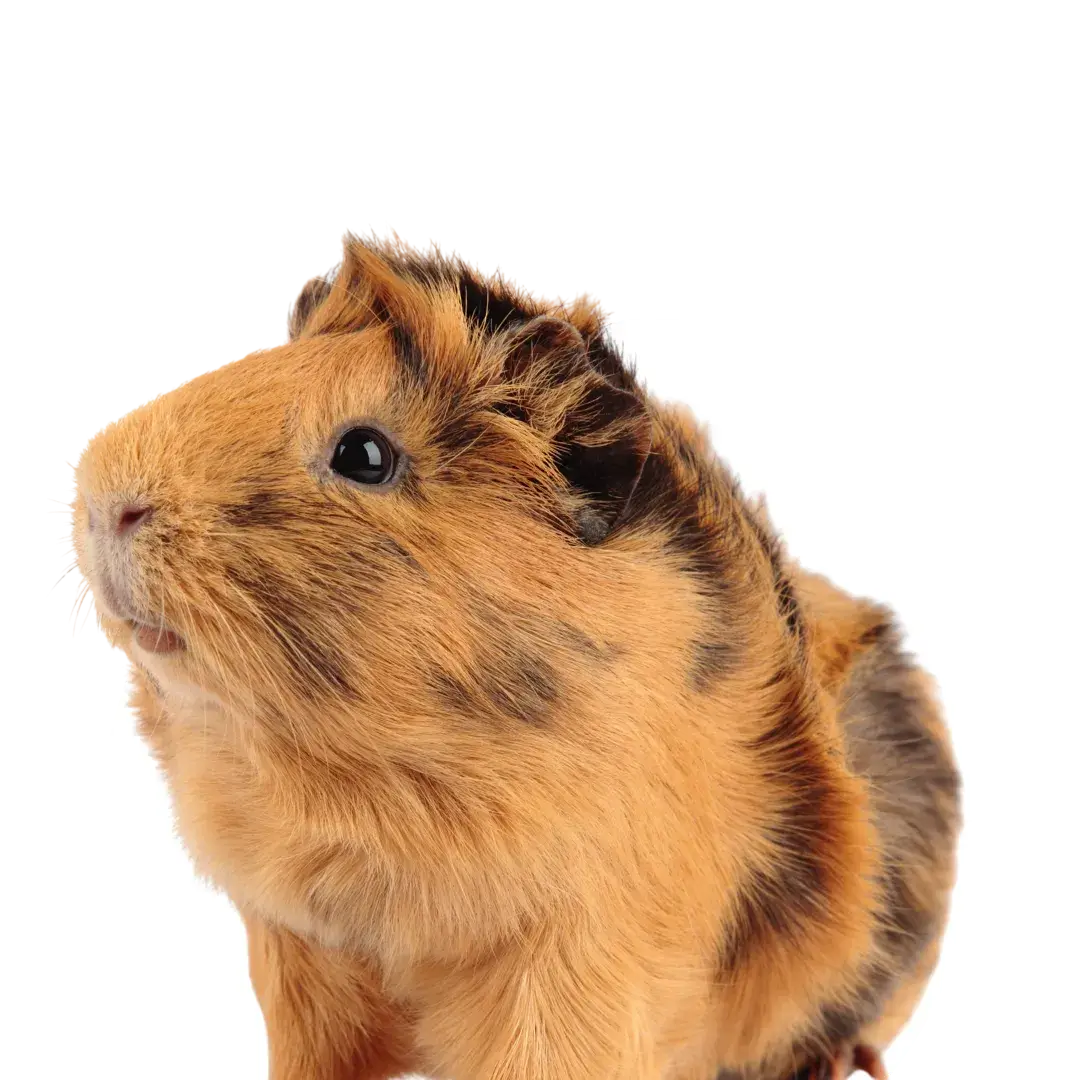
Skin disease can be triggered by several factors. Parasites such as mites and lice are common culprits, causing intense itching and fur loss. Fungal infections like ringworm also affect guinea pigs, especially in humid or dirty conditions. Poor cage hygiene allows bacteria to grow, leading to skin infections and abscesses. Guinea pigs can also develop allergies to bedding, food or cleaning chemicals. Nutritional deficiencies, especially lack of vitamin C, weaken the immune system, making them more prone to skin issues.

One of the earliest and most common signs. Guinea pigs may scratch until sores appear.
Inflamed skin is a strong sign of irritation or infection.
Severe scratching or biting creates wounds, which may ooze or bleed.
Constant discomfort makes guinea pigs more aggressive or withdrawn.
Bald patches, often on the back, sides or around the face, signal mites, fungus or allergies.
Thick scabs may form from constant scratching. Flaky skin can look like dandruff.
In long term mite infestations, skin becomes rough and leathery.
In extreme mite infestations, pain can cause sudden spasms that look like seizures.
The most common skin problems are mites, lice, fungal infections like ringworm and bacterial infections. Mites cause intense itching and bald patches, while lice can be seen moving in the fur. Ringworm usually creates circular bald spots with flaky skin, and bacterial infections may show up as sores or abscesses.
Yes, some skin problems can spread to people. Ringworm is the most common it can cause red, itchy, circular patches on human skin. This is why its important to wash your hands after handling your guinea pig and to seek treatment quickly if you notice suspicious skin changes.
Fur loss, or alopecia, is often caused by mites, fungal infections or excessive scratching from allergies. Sometimes it can also be due to hormonal changes or stress. If you see bald patches, especially with redness or sores, its time to have your guinea pig checked.
Treatment depends on the cause. Vets may use anti-parasitic medicine for mites, anti fungal medication for ringworm or antibiotics for bacterial infections. Supportive care includes vitamin supplements, pain relief and keeping the cage very clean.
Yes, especially for contagious issues like mites, lice or ringworm. Isolating the sick guinea pig helps protect others in the cage while treatment is ongoing.
You can click the Appointment button on our website or walk to our vet directly. Booking early ensures your guinea pig gets treatment without waiting in discomfort.
Your pet deserves expert care – Subscribe now for trusted tips and updates from our pet experts.
